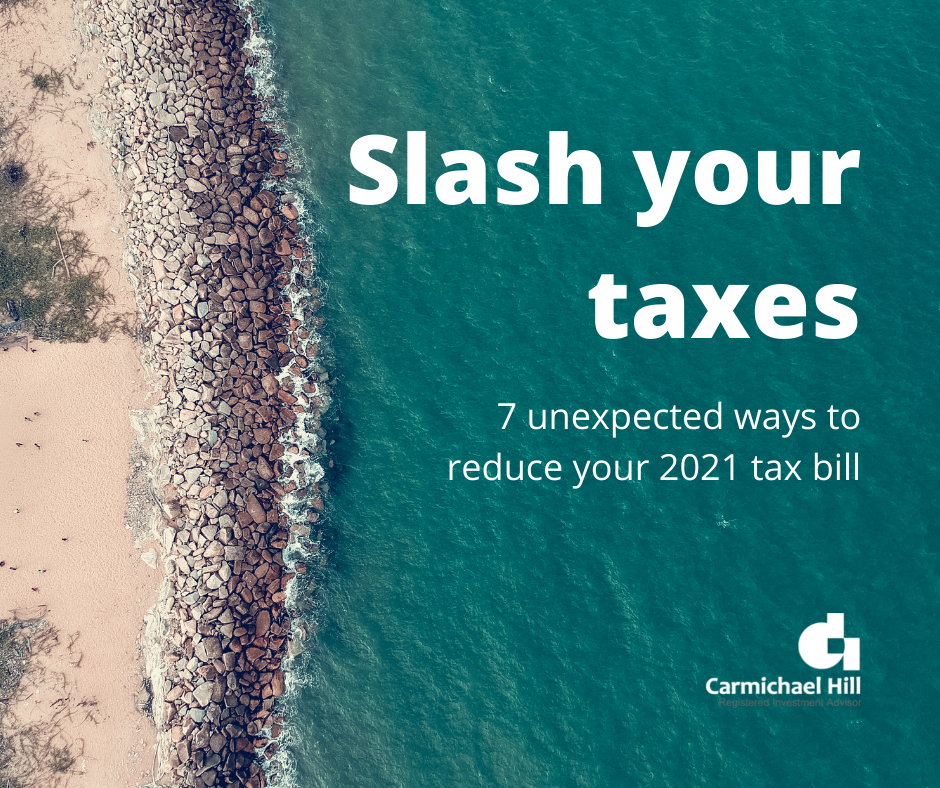Gamestop (GME) is having its best worst week in company history. It started the year at a modest $17.25. This week it set an intraday high of $483, representing a 2,700% return. That’s impressive for a company with an obsolete business model. Their highest margin business line is in buying and reselling physical video games. This is a tough spot to be in during the digital era. Most games are now downloaded from the comfort of home. Signs point to this stock going down, not up. How did it get to 2,700%?
The answer is weird. In late October, an investment group in popular online forum Reddit recognized something strange with Gamestop. The market was short to the nth degree against the company. A user by the name of ‘Stonksflyingup’ called for a short squeeze against GME and Melvin Capital, a hedge fund with a large short position in Gamestop. Retail investors (i.e. the average investor without billions in Wall Street capital) rushed in to buy the stock, which drove up the price. Traders with short positions against the company were forced to buy the stock to cover their positions, which drove up the price even more.
Most of us think about the same fundamental things when we consider buying stock in a company. Do they have a healthy balance sheet? Is their business model sound? Is there strong executive leadership at the top? But what we’re seeing with Gamestop is unique. People are piling on now to make (hopefully) easy money on a breakdown in market function. If the paragraph above didn’t make sense don’t worry. It’s complicated and we’ll break it down.
How To Go Short
The market has two sides: long and short. If you are ‘long’ a stock you are betting that it will go up in value. If you are ‘short’ a stock you’re betting it goes down. You can take short positions in a variety of different ways. Most are either speculative or defensive, with the latter largely confined to hedging strategies meant to reduce risk. We’re going to focus on the speculative side of things since that’s what is behind the Gamestop rally.
In a short sell, a trader takes a position by borrowing shares of a stock that they believe will decrease in price by a certain future date. The trader then sells these borrowed shares to other investors willing to pay the current market price. The trader is betting that they can repurchase these shares at a lower price before they have to return them to the lender.
Sound risky? It is. The maximum upside is known since the most the trader can make is the difference between what they sold the stock for and $0. (I.e. if they sell the shares at $100 and the company goes bankrupt, they could repurchase shares for no cost to return to the lender and profit at $100/share). The maximum downside is unlimited. Stocks don’t have a price ceiling and can theoretically climb upwards forever. If the trader sells the stock for $100 and it runs up to $500 by the time they have to repurchase it, then they have a 5x loss. Ouch!
The possibility for unlimited loss is why so many short sellers scramble to cover their trades when their strategy starts to implode.
Breaking Down a Margin Call
A margin account is what your brokerage house sets you up with when you want to borrow money/securities from them to short sell stocks. (Brokerage houses are places like Schwab, Fidelity, Interactive Brokers, Robinhood, and many others). Because of the risk that short selling poses to brokerages, many have implemented rules and requirements governing how margin accounts must be opened and maintained. Firms frequently set requirements for these accounts that are stricter than the bare minimum prescribed by the SEC. Case in point, Bank of America just upped its margin requirement to 100% for certain high volatility stocks.
The trader that owns the margin account will get a call from the brokerage firm if their account breaches the broker’s required minimum level for risk management. For long accounts this happens when the security values drop. For short accounts it happens when security values rise.
The trader will have to deposit more cash or additional securities into the account to get it back to the minimum required level, known as the “maintenance margin”, when losses start to build up. The brokerage house can force the trader to liquidate and sell other assets to meet the margin call if the trader can’t/doesn’t deposit funds.
This is all done to minimize the risk to the broker that lent the shares. They want to ensure they don’t get overextended and go belly up. But this doesn’t mean things can’t go wrong. A brokerage house is only as good as its risk management policies. Enter a short squeeze.
A short squeeze is a pernicious market dislocation in which a trader takes a short position in a stock only to see that stock move northward at a quick clip. The trader gets a margin call to cover their position. They buy stock to cover. Buying more stock pushes up the price of the stock even further, which triggers yet another margin call. It’s a nasty feedback loop that can lead to a stratospheric upward spiral. Even the most talented traders can go bankrupt in a few short days when caught in a short squeeze.
But short squeezes have an end. Eventually the short sellers will cover their positions and stop buying, The price of the stock will go plummeting back down to its pre-squeeze levels. These parabolic moves make some investors fabulously wealthy. Most just get burned. It’s one of those strange market events where it’s better to be lucky than skilled.
How Gamestop Burned Short Seller Melvin Capital
Most hedge funds jump through quite a few hoops to hide their trades. Revealing their positions could yield an advantage. So it was a little strange to see short positions in a regulatory filing for Melvin Capital.
If hedge funds use put options, which is a contract that gives its buyer the ability to sell a stock at a predetermined price, they generally buy them over the counter (OTC). Put options bought OTC don’t have to be disclosed in regulatory filings. (We didn’t get into the ins-and-outs of this, but put options are another popular way in which traders will take short positions). The Q3 2020 filing for Melvin Capital showed put options on 17 companies, including Gamestop, AMC, and several other highly shorted names. For reasons unknown, they failed to buy those options OTC. The calls on Reddit to buy Gamestop came just after the release of Melvin’s Q3 filing in October.
To put things in perspective, an announcement recommending the purchase of a shorted stock is extremely common. Analysts frequently put buy ratings on beat up companies that are heavily shorted. Self-styled “contrarian investors” regularly purchase stocks that nobody else seems to want. An announcement on an obscure internet message board to purchase Gamestop wouldn’t normally be news. However, the timing matches well here. Game stop was a $6 stock four months ago. It’s currently trading for several hundred depending on the day while it’s rally seems to have come exclusively after the call to buy went out on Reddit.
It’s easy to see why news outlets are linking Gamestop’s surging stock price to the Wall Street Bets Reddit forum. After all, the the forum had over two million members when the first call to buy went out! Couple that with commission-free trading apps like Robinhood and its easy to make a case that tens of thousands of retail investors piled into Gamestop and pumped up the price, thereby inducing a short squeeze. There is probably something to this but giving all credit to the Reddit crew is reductive. We think big money is in play here too.
Circle the Wagons and Shoot Inward
A short squeeze is nothing new, but one instituted by retail investors is. We’re not convinced this is the case. Gabe Plotkin, the manager behind Melvin Capital, worked for famed Wall Street Manager Steve Cohen for eight years before founding Melvin in 2014. Cohen has close to $1bn invested with Plotkin and ponied up another $750m when Melvin got caught on the short squeeze. Ken Griffin of Citadel threw in another $2bn as well. It’s not known whether Griffin or Cohen took long positions in Gamestop (GME) and exacerbated the short squeeze. It would make sense if they did.
If Griffin and Cohen were on the long side of the trade and Melvin on the short side, the losses incurred by Melvin would be the equivalent gain for Griffin and Cohen. The cash earned by squeezing Melvin could be used for a rescue package to Melvin. This would give two Wall Street titans a stake in one of Wall Street’s best hedge funds and for practically no out of pocket cost. Clever. Sometimes it pays well to circle the wagons, shoot inward, and intensify the pain.
Who is Actually Posting on Wall Street Bets?
The Wall Street Bets Reddit forum has seen some very impressive and advanced research posted to it. Some are calling into question whether institutional players are posting here in an attempt to pump up the price of Gamestop and others. It would be illegal if they did.
So far only one of the flag bearers from the forum has been identified. The user posting under the aliases “Deep ****ing Value” and “Roaring Kitty” are one and the same, a Chartered Financial analyst (CFA) and father of two based in Massachusetts. For the uninitiated, know that a CFA title is a big deal. It’s been repeatedly ranked as one of the most difficult exams on the planet and is a heavyweight investment designation. So-called ‘Roaring Kitty’ has some serious investing chops. We wouldn’t be surprised if others like him, some of whom may in fact be working for institutional investors with positions in GME, to be identified should the SEC investigate.
Another Wrinkle in the Fabric
Last week Robinhood, Interactive Brokers, and a slew of other smaller brokerage houses restricted trading in Gamestop and a handful of other selected names that were heavily shorted. The reason has to do with requirements from the clearinghouse.
There are several different parties that have to come together to complete a transaction when you buy and sell things in your account. Your broker, lets say its Robinhood in this example, takes your order to sell 100 shares of Gamestop short. It routes your order to a market maker, which records your order with Robinhood and an intermediary known as a clearinghouse.
The clearinghouse is responsible for validating the transaction and ensuring that everyone lives up to their contractual buy and sell obligations. Brokerage firms like Robinhood pay to be members of a clearinghouse, which acts like a central depository for securities. These clearinghouses have rules to ensure their members can support their customer’s trades. This can involve depositing money to the clearinghouse on some days and withdrawing it on others.
The clearinghouse uses complex formulas to calculate how much risk one of their members has in aggregate across its customer base. If customers are buying highly volatile stocks, or shorting highly volatile stocks, the clearinghouse will require the brokerage house to pony up and pay in hefty sums. It’s got to ensure that its member constituents can make good on its customer transactions.
It’s these clearinghouse requirements that led several brokerage firms to put the kibosh on new purchases of Gamestop. The firms couldn’t allow customers to keep buying because they didn’t have the cash needed to pay the clearinghouse. (Robinhood just didn’t have the cash outright. It was forced to raise billions in order to meet the clearinghouse requirement).
Brokerage houses restricting purchases led many customers to cry foul. It’s a narrative with all the classic trappings of a major institutional player steam rolling the little guy. The pain is especially acute for Robinhood, who must be crushed under the irony of their mission statement to “democratize finance for all.” We suspect that a few new rules and regulations come as a result from this.
Questions Arise Over Robinhood and Citadel
We mentioned earlier that Ken Griffin, owner of market maker Citadel Securities and hedge fund Citadel, rushed in with $2bn to rescue rival hedge fund Melvin Capital. Griffin’s Citadel securities is also Robinhood’s biggest client. They pay handsomely to route Robinhood’s order flow. This gives them real-time access to the trade volumes of everything bought and sold on that app. Disclosures from Robinhood show that Citadel processes over half of its orders.
California Congressman Rohit Khanna raised questions last week about whether clearinghouses were restricting trade in coordination with hedge funds. So did Reddit users. But there is likely little to these claims. Robinhood was asked by the clearinghouse to come up with a deposit that was tenfold more than the previous day’s deposit. The company didn’t have the cash and restricted trading. But this does little to wash the stink off. Griffin’s Citadel and Robinhood are likely to come under increased scrutiny.
Many Robinhood users may be unaware that their orders are sold to a market maker that sees flows in real time. Disclosures aside, the practice is littered with conflicts of interest. But Robinhood isn’t alone. Other major brokerages have been selling their order flow for years. Disclosures from Fidelity, e*Trade, Charles Schwab, and TD Ameritrade, and many others show they do the same thing. Many of these brokerages restricted trades along with Robinhood but didn’t catch the same flack. Lawsuits are already pending.
Trading restrictions may just be the straw that breaks the camel’s back. Rep. Alexandria Ocasio-Cortez (D-N.Y.) and Sen. Ted Cruz (R-TEX) have both chimed in to support an investigation of Robinhodd’s decision to block trades. This may be the only issue the two ever see eye to eye on and is indicative of what could be broad bipartisan support. As we said earlier, we expect a few new rules and regulations to come out of this dumpster fire before its all over.
How this Impacts You and What To Do Moving Forward
We’re hoping you walk away from this unscathed. Gamestop isn’t a component to any of the major indices (DOW, S&P 500, NASDAQ). It is in wrapped up in several small cap indices that may see bumps upward given Gamestop’s rise. But this will be temporary. All short squeezes have a finite life and Gamestop will have to come back down. (Gamestop is down about 55% today as we write this).
Those who get hosed will be those that bought in hoping to time it right and those who got caught in a short squeeze. We expect some big losses and tears on their part. Buy and hold investors may have gone through some panic and euphoria on the parabolic moves of GME but will otherwise end about where they started by the time this all shakes out. New regulation is likely. The brokerage houses that restricted trades may also find that those actions irreparably harmed their brands. Time will tell.
Our stance remains unchanged. Timing a short squeeze is hard. Most will be unsuccessful. Free trading apps aren’t actually free. Wall Street may be seeing the emergence of a new and powerful force from coordinated retail traders, but we still suspect that the institutional investors are behind a good bit of this. Stay vigilant.












